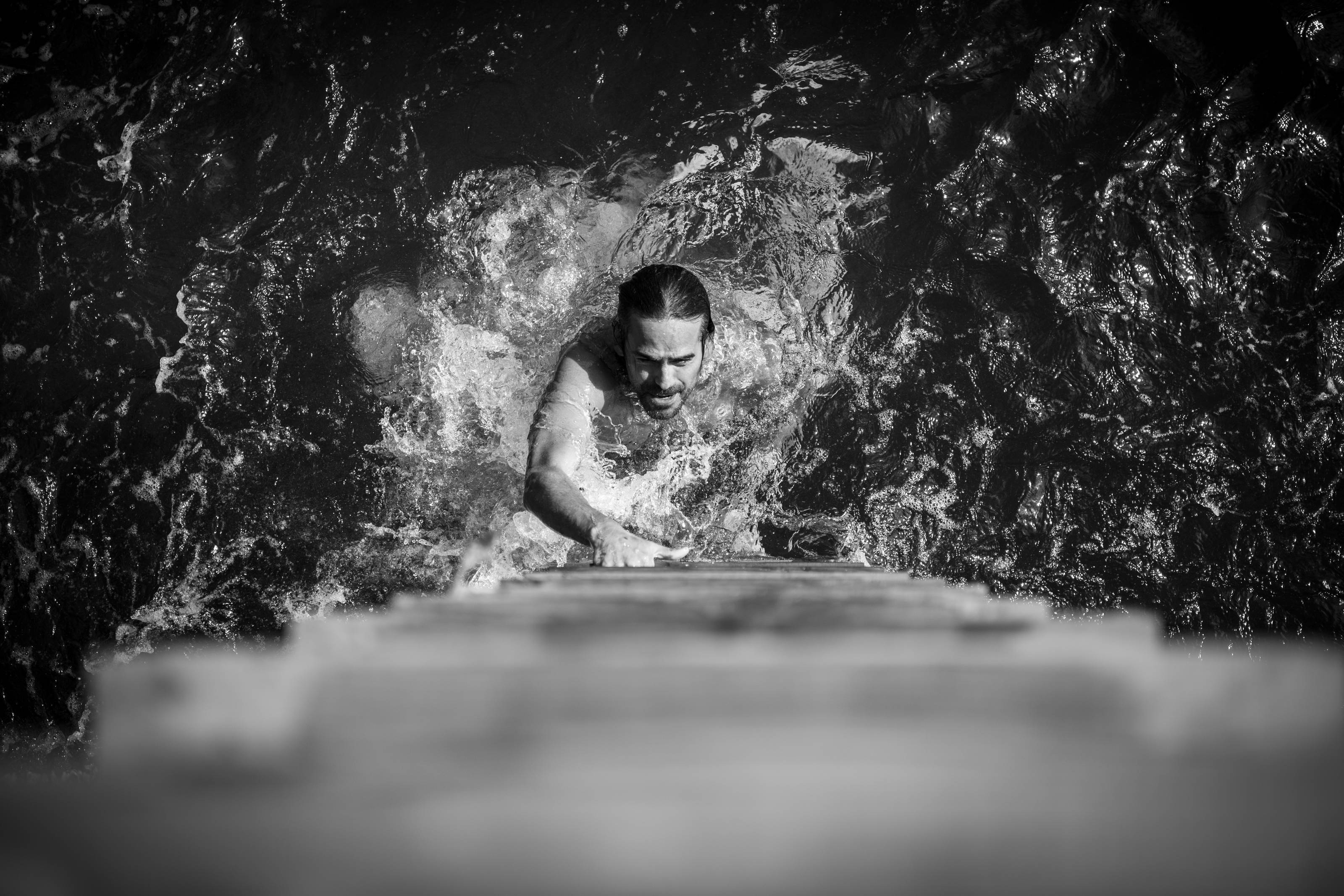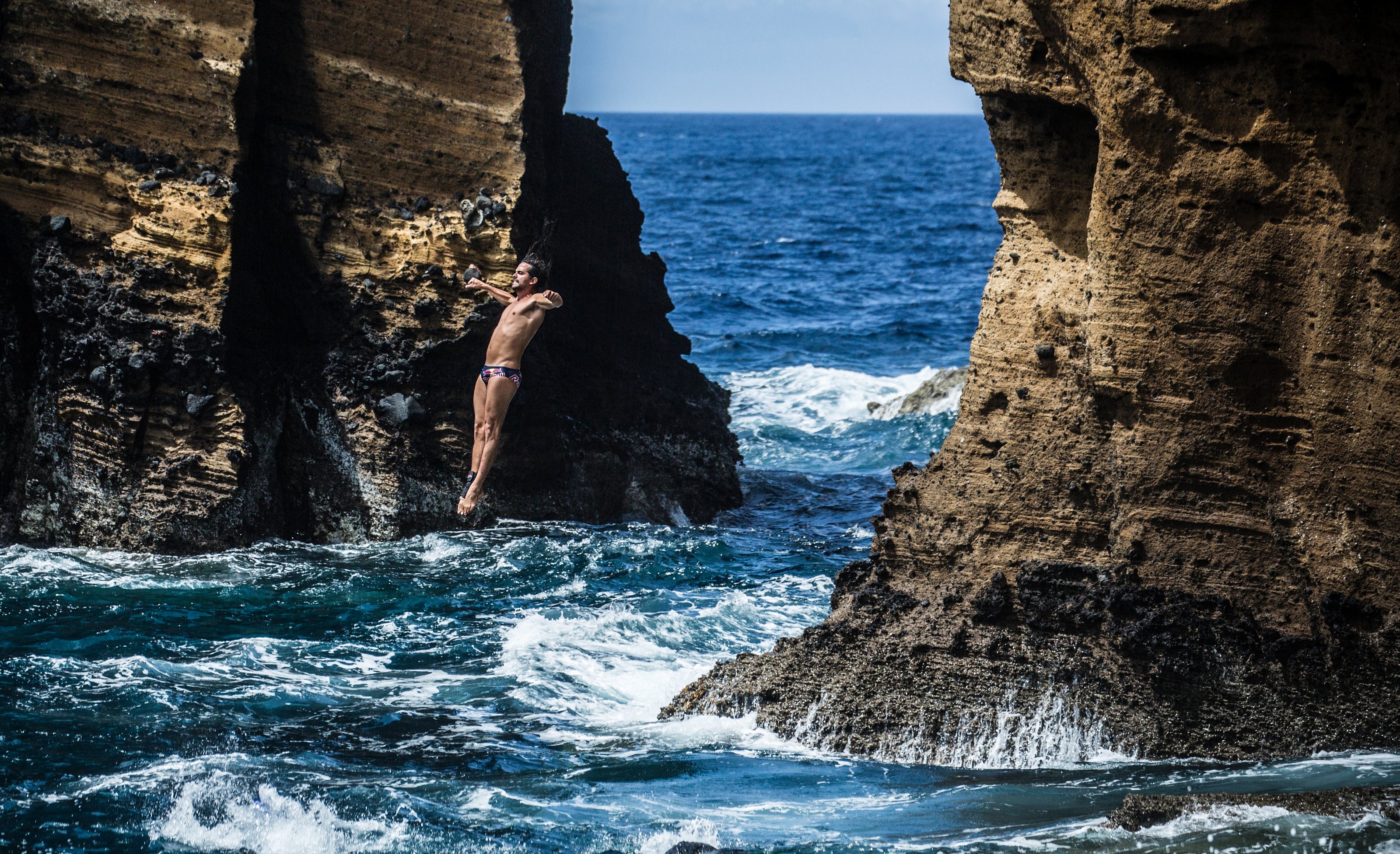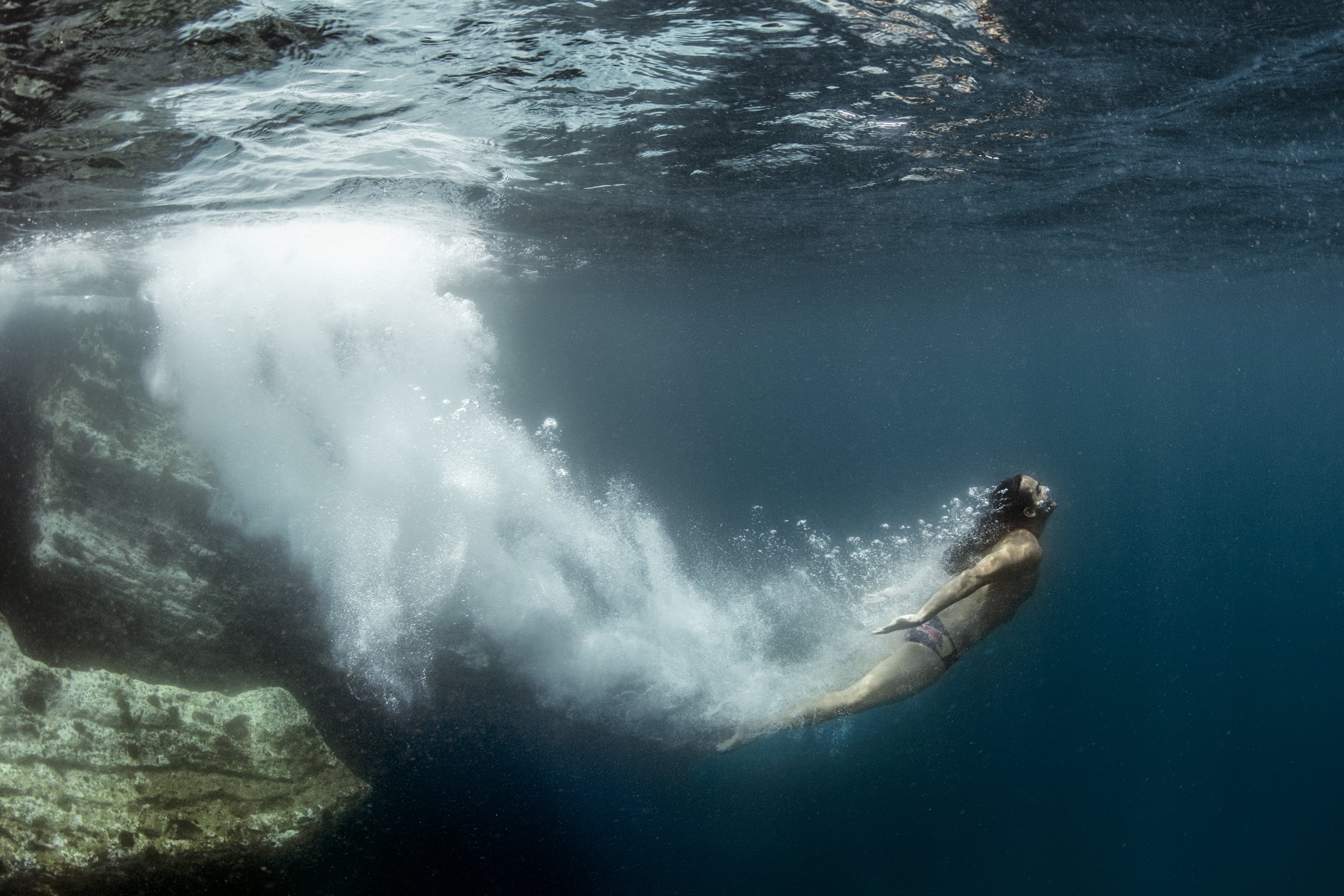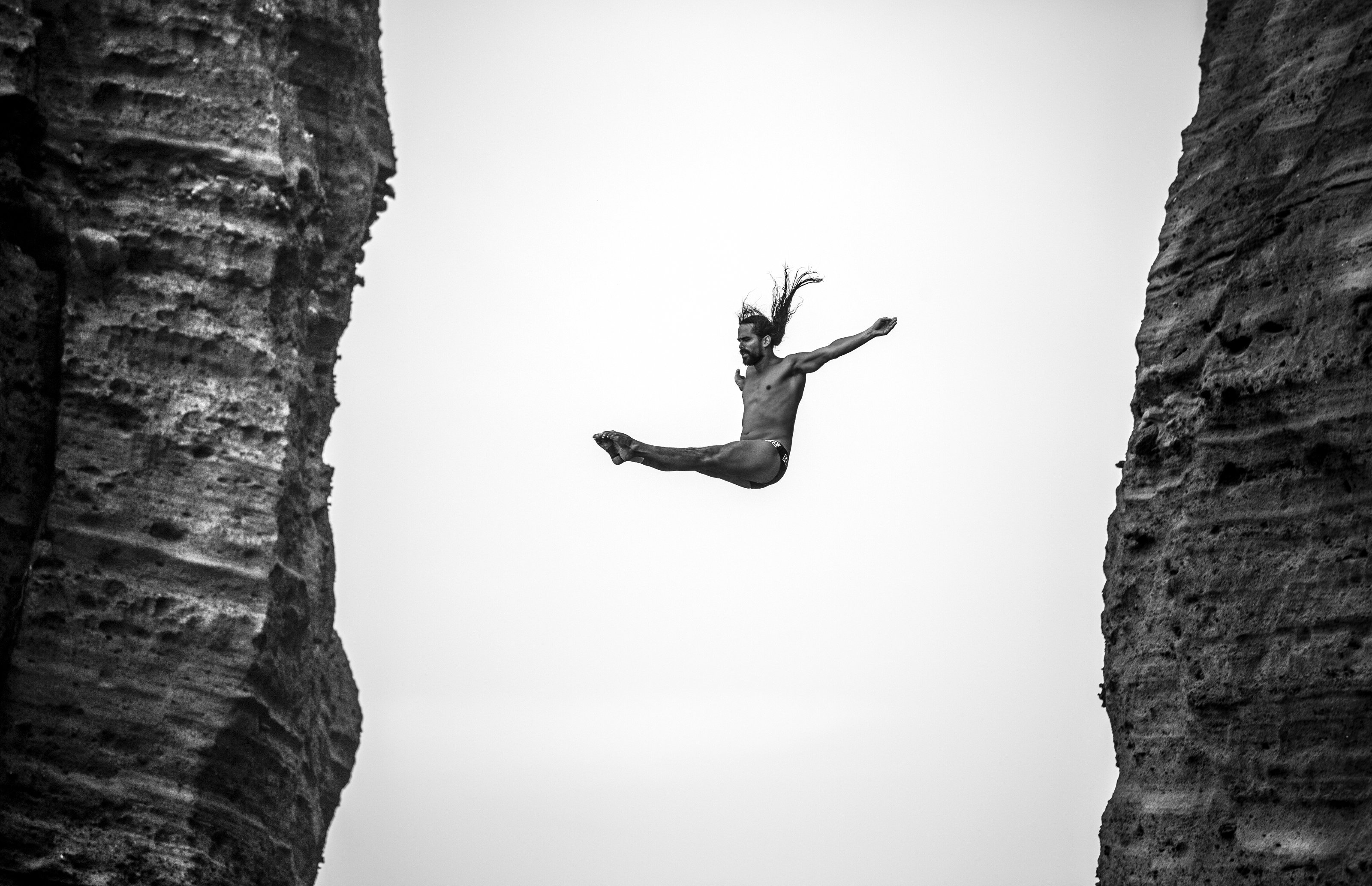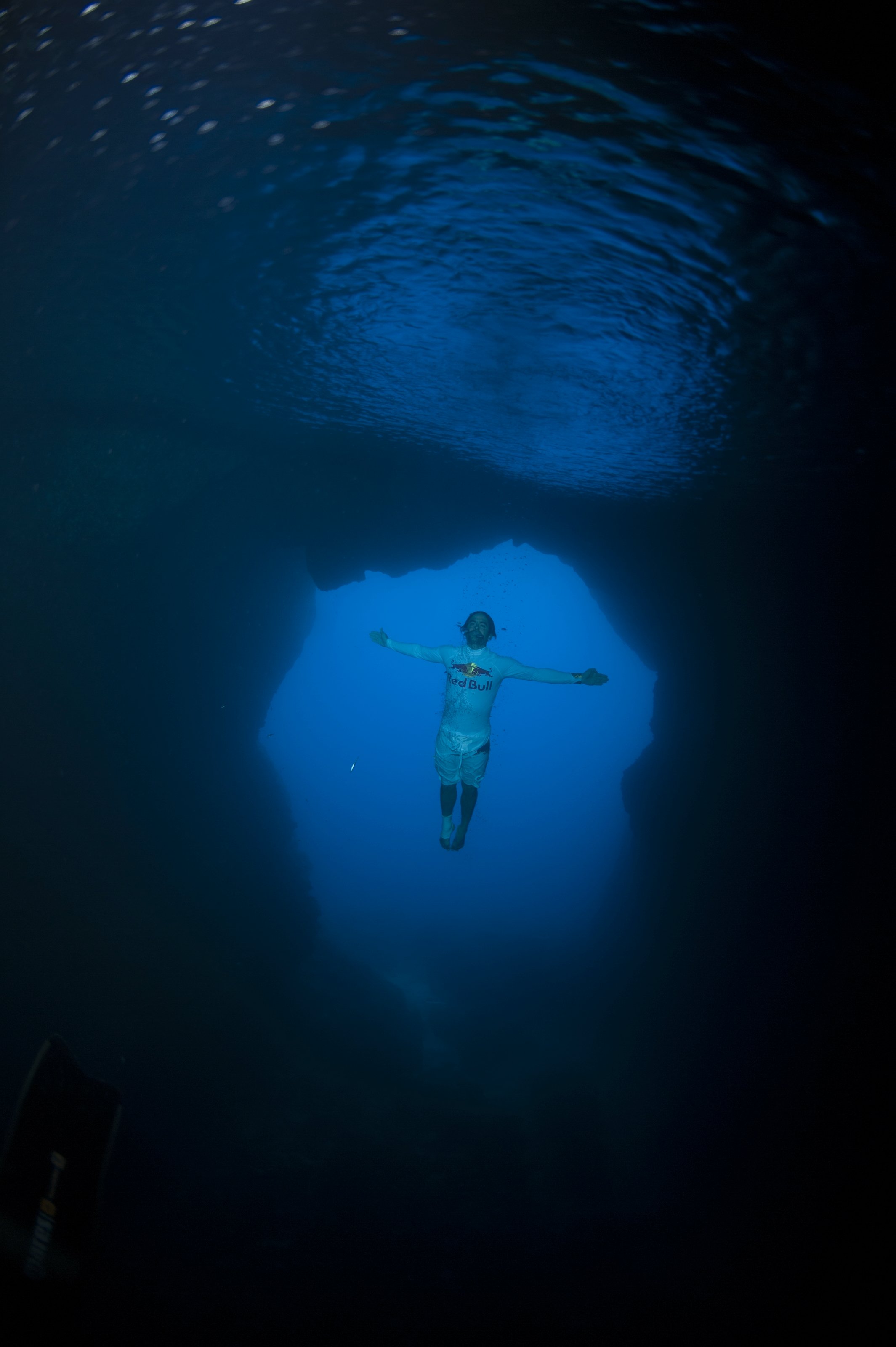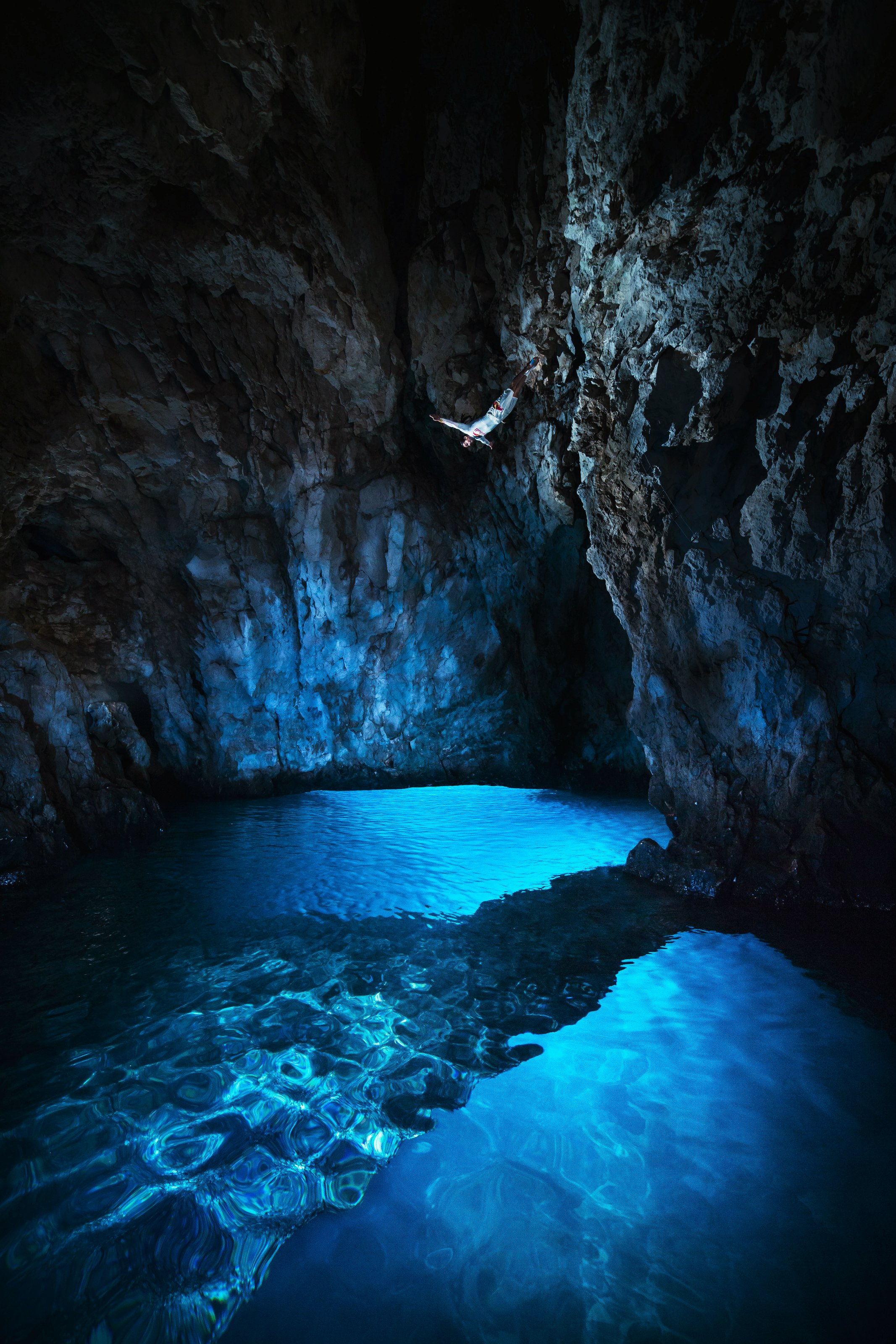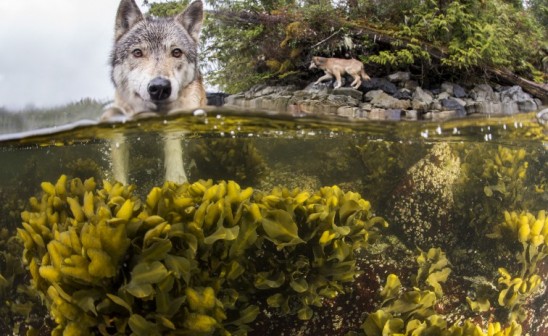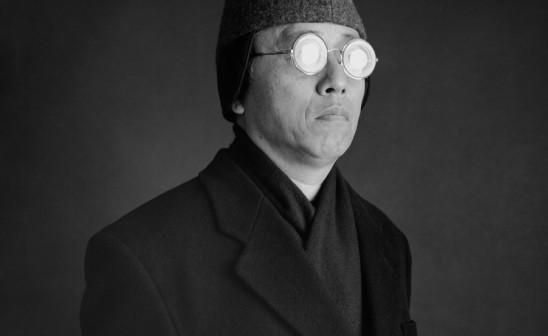»Water is what allows me to do my sport. Water is what allows me to enjoy the life that I live. There’s no water, there’s no chance.«
Called »The Duke«, and known as »The Godfather of Cliff Diving«, Duque started out diving in swimming pools before turning to cliff diving. Over the years, Orlando, 42, has won eleven world titles, and made it into the Guinness Book of World Records. Duque literally dedicated his life to cliff diving. With a 30-year diving career and 20 of those as a cliff diver, the Colombian high diver hopes to help recognize the sport as an official part of the aquatics family, and see cliff diving in the next 2024 Summer Olympics. Here’s the second part of our interview with Orlando Duque.
Is training a big part of your daily routine?
Training is continual, I train non-stop. We have a limited time in the air. Once I jump, I have less than 3 seconds and I have to utilize those 3 seconds the best way possible. My legs need to be very strong so I can gain a little more altitude. I need to make sure that I’m very fast, so while I’m falling I’m still able to spin very fast and complete my dives. Then, due to the height, when I hit the water, I need to be very strong to handle the impact because it will be really hard. The body has to be in very good shape. The water will push you around, but you have to be strong enough to be able to handle that.
Do you think the mental game is important?
Yes, very much. If your body is very fit, but your mind is not up to it, you won’t get the right result. When you’re standing on a high cliff looking down, you start to really worry, your mind is what’s going allow you to do the dive. Your body basically freezes because your brain is sending a message -‘be careful, you could kill yourself. Step away, stay there, don’t jump.’ But in your head, you know you can do it, you know you’re prepared to do it. So it is actually your mind that allows you to do that. I do some mental training. For example, I can see my dive in my head, I see myself from far away, I see myself from inside my eyes doing the dives. I do breathing exercises when I’m on the cliff or on the platform ready to dive. When I start to get worried, I know I can visualize my dives, I know I’m prepared to do it. I just breathe nice and slowly, and then I’m in a different mood and ready to dive.
As a cliff diver, you know that the risk of losing your life is imminent, how do you overcome fear?
You have to trust your preparation. You have to trust your training. I know the risks, I think I probably understand them better than anybody else. I also understand that I’ve done all the preparation. If I’m on this cliff, trying to do this dive, it is because I know I’m prepared to do it. I’m pushing as hard and as high as possible, but I think without going over that limit. Making sure I’m very close to this limit, without really going over it because we have no protection. In some other sports, there’s the fortune of having some sort of protection, whether it’s a helmet or boots, or even in big wave surfing now, they have floating devices on wetsuits. In cliff diving, we don’t have anything. So I have to trust my preparation, I have to make sure that I’ve done it, and then I can perform.
You recently said in an interview: »If I climb to top, I’m ready to dive, there’s no turning back.« That’s what we call determination.
I make that choice. If you’re playing football, you’re in the field and the balls comes to you, you have no choice, the ball is coming to you. So it’s my choice. I wake up in the morning and I know I’m going to dive, I know I’m ready. If I’m climbing up to the place that I’m going to jump it is because I’m ready to jump. Unless there’s some sort of safety issues in the water, there’s some floating debris, animals or a boat and I cannot dive, nothing else can stop me. But if I’m standing ready to dive it is because I’ve gone through all the preparation. The mental preparation has started, the mental stress has started. When I wake up in the morning, I can feel my heart beating faster because I know that I will be competing.
You spend so much time in the water, how would you describe the intimate relationship that you built with the sea?
Without water, I can’t do anything. It just gets to that point. Water is what allows me to do my sport and to enjoy the life that I live. If there’s no water, there’s no chance. It’s called gymnastics and it’s a completely different sport. Water is probably the most important element. Everything that happens in the air, I’m controlling. But water is what allows me to do it safely. When you hit the water, after a hard impact, it can be really heavy depending on how high you’re jumping from. Then, the water is trying to tear you apart but you can handle it. Then, underwater, everything is quiet. Underwater, everything is nice, everything is okay. It’s really enjoyable. The best feeling is being underwater after a successful dive. And you’re pretty much ready to do it again. It’s exactly what allows me to do my sport.
What does the environment look like once you’re underwater?
Like I said before, I have a little bit less than 3 seconds in the air. There’s so much action, there’s so much stress, the wind, the speed, there’s so much going on. All these things, when I hit the water, disappear. Underwater, everything is quiet, everything is calm. Your first reaction is like ‘Okay, everything is okay’. Then, you realize, ‘Oh this feels so good!’. In the water, sometimes, from over excitement, I’m shaking. It’s just because the feeling is so intense. And it doesn’t have to be competition. What I try to explain to some people sometimes is that it’s more about the dive. Sometimes, it’s just a beautiful place, nice rock, it doesn’t have to be too high, 10-15metres. I jump in the water and it just feels good. To me, it’s tempting, it’s attracting. I want to jump, I want to be in the water. The time I spend in the air is so short that when I’m in the water is actually when I’m experiencing the best feeling of the dive. Because it is where I probably spend more time.
Today, you’re considered a legend in the sport, you won 13 world titles, and have two Guinness world records to you name. What are your next projects?
I’ve been lucky to have a really good career and great results. But I don’t just sit and remember that. Of course, I want to keep winning, that’s why I keep competing. Next year, we’ll have the World Championship, I would like to win that again. I won the first Gold medal in 2013 so I would like to repeat it. It’s the highest honor we have in our sport.. One of the biggest projects is trying to include high diving in the Olympic Games. It has potential. I may not be able to compete at 42, but I can play a role in making sure that it is included and some of the other younger divers get to show the sport I love in the Olympics. I think that would be a really cool project to work on the next few years. And in terms of diving, I always had this idea in my head: I want to do this road trip, starting in South America, then maybe check out some European places, and Africa. On the road, I want to explore more. A lot of my events lately are fly there, dive, get on a plane, fly out again. So I want to do it on my time, that would be something fun too!
Credit photos:
Jason Halayko / Predrag Vuckovic
Romina Amato / Marjan Radovic / Tomislav Moze News


